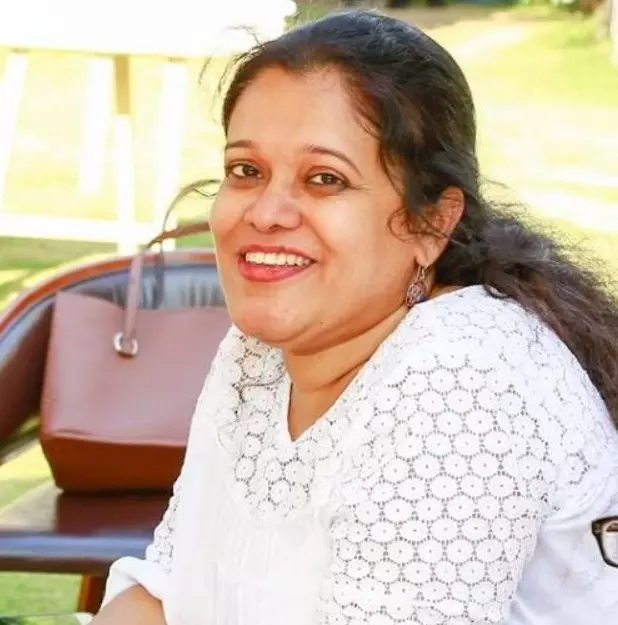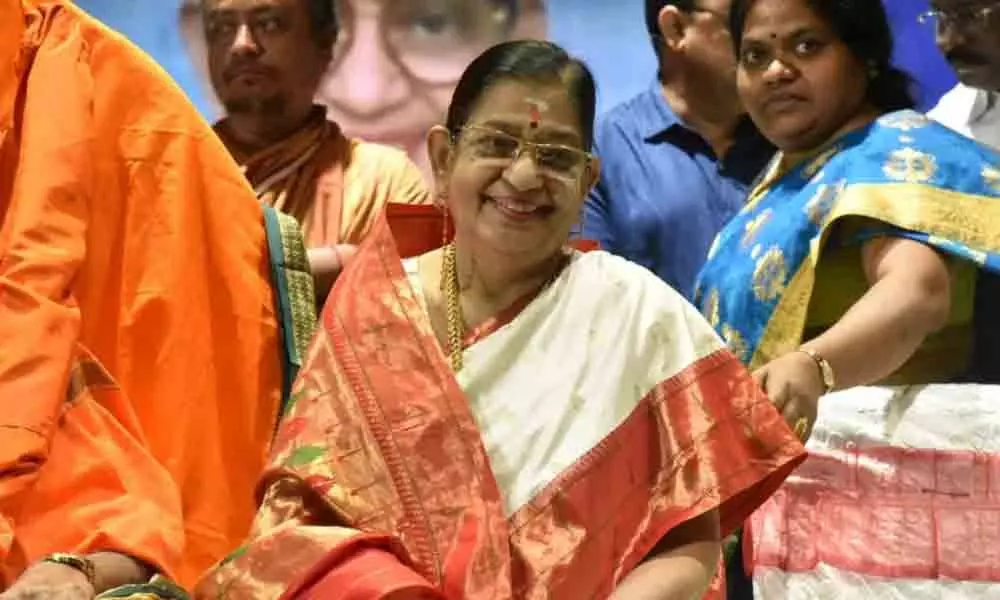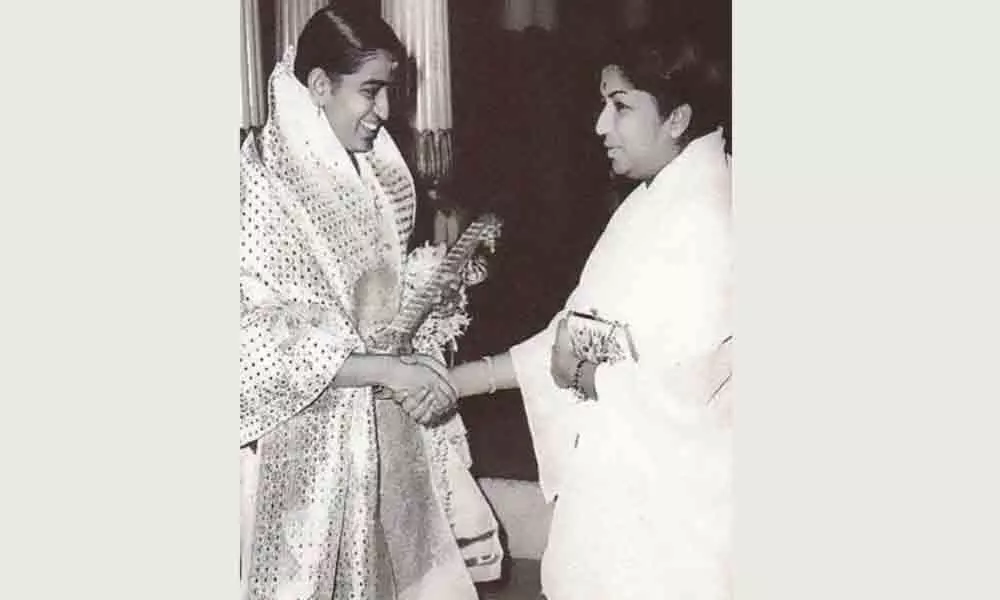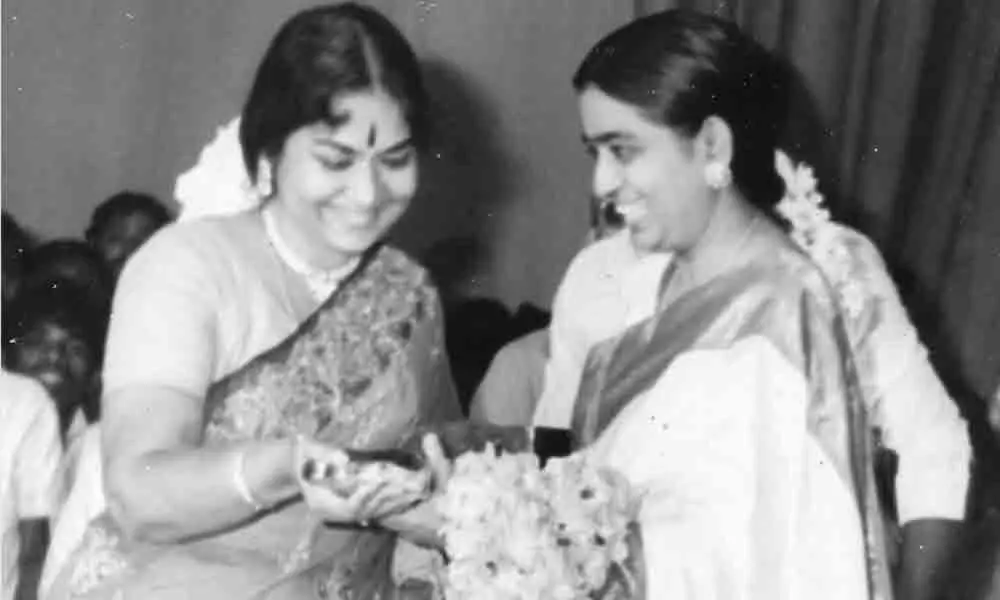A little conversation, and a lot of music
Legendary singer P Susheela, who is the voice behind countless film songs in south Indian films, in myriad genres and across generations, shares anecdotes and musical notes during an exclusive chat…
Sriramanamalu satakoti', 'Radhaku neevera pranam', 'Janani Sivakamini', 'Aakasaveedhilo andaala jabili', 'Nannu dochukonduvate', 'Neevu raavu nidura raadu', 'Aha na pelli anta', 'Neechelimi nenekoritini', 'Chandana charchita', 'Chitapata chinukulu paduthoovunte', 'Idi mallela velayani', 'Aakulo aakunai', 'Gaaliki kulamedi', 'Sreerastu subhamastu', 'Kannulaku roopandam' – just fifteen out of the approximately 50,000 songs composed by numerous music directors from across 12 Indian languages spanning five decades can just be called a speck out of the immense musical treasure, courtesy the Goddess of south Indian film music, P Susheela. Her mellifluous voice has translated various emotions into music rendered with ease, the wide range of genres with clarity and perfection making her the darling of music creators and lovers of music alike.
She came into playback singing (around 1955) at a time when stalwarts of the era like P Leela, Jikki, ML Vasantakumari, Komala, Rao Balasaraswati were reigning the music scene. Each had their distinct quality of vocals and amidst them, it took dedication to slowly and steadily rise to a place of privilege bestowed upon her by her fans who could not have enough of her singing, and she remained the queen of music in Telugu, Tamil, Kannada and Malayalam for many years to come. Producers would wait for months to get her to sing in their films.
And to think that this nightingale of music was reluctant to learn Carnatic music as a child comes as a surprise. Susheela is the fourth among the seven sisters and four brothers, and her father would make all the sisters learn music. Young Susheela was more into film music, "I never liked classical music. I used to learn music only because my father wanted me to. At home, I would practice and sing loudly all my favourite film songs. My father wanted me to become like MS Subbalakshmi and Pattammal. Instead, I went into films. However, later, when music directors would make me sing classical music-based songs, I had to," smiles Susheela, who shared many interesting tidbits from her musical journey during an informal conversation. She was in Visakhapatnam to receive the prestigious Kopparapu Kavula Jaateeya Puraskaram.
Born to Seshavataram and Mukunda Rao, P Susheela pursued her Diploma in Music from the famous Maharaja's Music College, Vizianagaram when Dwaram Venkataswamy Naidu was the principal. She would listen to the stalwart singers like Ghantasala, who she held in much reverence. "It is but a blessing that I not just got an opportunity to meet him, but sing with him, and continue to sing with him for many years," shares the melody queen, who also grew up admiring Lata Mangeshkar.
In all humility, she gives credit of her success to the ''heroines who enacted the songs so well that they have been retained in public memory for so long, the talented music directors, and songwriters, who wrote such beautiful lyrics."
Legend has it that when she sings a tune that a music director gives her; it gets a new shape with intricate inflexions and a style of its own, and most of the times all it took was a single take. She says, "There was no time to count how many songs. I just went along and sang whatever song came my way. And while I was at it, I would introduce a few variations, and the directors would ok it. We used to practice in the music directors' offices. I used to carry a small tape recorder and I would play it back after the session. Singing for musicians like MS Viswanatham and Rajeswara Rao also honed my skills. MS garu would shout and make us sing until he got what he wanted. Rajeswara Rao would say – 'Ammayigaru naa paatalu baga padataru'. It was a different era," and goes on to hum 'Andala bommatho aatadana' and the intricately composed 'Teeyanayina oohala' by the legendary music director. "I have become lazy now and am not singing much. And that restricts the voice," she adds. "But I listen to my songs and happily go to sleep. I also like to listen to solo songs of other singers. Recently, I heard my song, 'Chinnamata oka chinnamata' and 'Padutha teeyaga challaga'. I just sing whatever I remember or if someone hums and it gets stuck in my mind. I sometimes admire myself for singing such wonderful music which I consider a divine blessing."
As a young singer, she debuted with Pendyala Nageswara Rao, and went on to sing for the who's who of Telugu film music P Adinarayana Rao, Susarla Dakshinamurthy, T Chalapathi Rao, P Ramesh Naidu, Veturi Sundara Ramamurthy, Chakravarthy, Ilayaraja and even AR Rehman, and with each of them she has had some memorable compositions that have remained in people's memories for decades now.
Commenting on the present-day technological advancements in film music recording, which is in stark contrast with the days when she had to sing with a live orchestra, where everything and everyone needed to be precise, she says, "I would have sung many more songs if it was like anywhere near what it is now."
While she has a liking for Lata and Ghantasala (which she says is because he was such a great singer, and he studied in Vizianagaram where she was born), she has special words of appreciation for all singers of her time. "Each has their own strength. SPB has his way, and we remember Ghantasala's songs even when he is no longer with us. We cannot compare who is greater. Their popularity is because of their uniqueness. I cannot sing like Janaki. She sang any kind of music with much ease," She states.
She keeps herself updated with emerging young singers, especially child prodigies on the internet, and hopes they have better opportunities. About the singing prowess that is being discovered from amidst the commoners these days, like Baby and Ranu Mondal, she says, "Why not? Great singers like The Beatles were discovered from the roads."
To the young singers, she has a piece of advice, "Youngsters must learn classical music. You need a foundation to build a house. And similarly, a base is needed, over which you can weave your music. That helps you know what you are singing better."
She has had a wholesome life. And if there is one thing that she hopes for it is to continue a trust which she started in her name – P Susheela Trust through which, several accomplished singers were awarded, and senior musicians were given pensions. "The activities of the trust have slowed down for want of funds. I truly hope the trust gets support from government and well-meaning individuals so that the pensions continue. I hope to leave behind some good work," she signs off wistfully.











